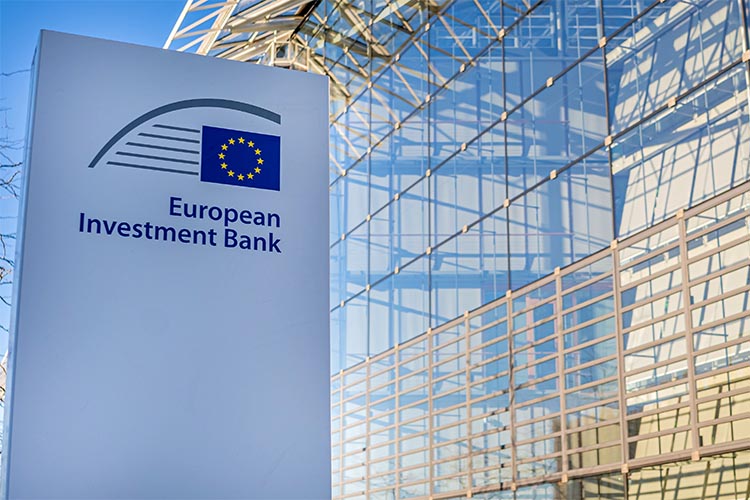Amid the current challenges, Serbia can benefit further by using the impetus of nearshoring to move ahead with reforms within the accession process, scale up skills and create a greener, more integrated and more digitalised market
A recent investment survey conducted jointly by the European Investment Bank (EIB), the European Bank for Reconstruction and Development (EBRD) and the World Bank states that weak management capacity, political instability, taxes and low workforce skills are key obstacles for firms in the Western Balkans. “If I were to pick one obstacle where we see room for improvement, I would single out the expansion of workforce skills”, says Alessandro Bragonzi, Head of the EIB regional representation for the Western Balkans. According to our interlocutor, this issue is a key enabler for the region’s competitiveness and for seizing the opportunities of nearshoring. “The lack of (particularly digital) skills continues to hamper further economic progress both at the regional and European Union level. On top of that, the prevailing uncertainty regarding the economic outlook is expected to further constrain both government and firm-level investment in skills development” he adds.
In Serbia, the EIB sees that the country is implementing measures to address this issue. EIB Global, the bank’s specialised branch for activities outside the European Union, has financed two projects to advance Serbia’s digital transformation. The first, with the government of Serbia, entails the introduction of new digital equipment, broadband infrastructure and skills in over 1 500 schools, helping to improve the digital abilities of the future workforce, contributing to better job prospects and the digitalisation of the economy. The second project concerns upgrading the existing 4G network and rolling out 5G across the entire country, enabling people from remote and rural areas to access high-speed internet and mobile services. “This will help mitigate the rural-urban digital divide in Serbia, leading to new job opportunities and equal access to information”, notes Bragonzi.
EIB Global aligns its activity with the EU enlargement strategy and its financing reflects the policies and priorities as set out by Serbia and the EU.

According to the European Commission’s 2022 report on Serbia, the country has continued the work on harmonising with EU standards in many areas, particularly on company law, freedom of movement for goods and workers, intellectual property rights, research and innovation and financial control. Further progress in the internal market area will be essential for early and stronger integration with the EU market and the creation of the Common Regional Market. There is still room for improvement regarding public administration and public financial management, especially regarding the full implementation of a single mechanism for prioritising all investments regardless of type and source of financing.
How attractive do you think the Serbian business environment is for major global chains that are considering nearshoring?
Solid and skilled human capital, combined with attractive labour costs, have been one of the country’s key advantages as an investment destination. In 2022, both import and export volumes kept growing considerably, reflecting strong foreign direct investment and continued integration into global supply chains.
The EU Bank has significantly expanded its local team in Belgrade to deploy new innovative financial instruments in Serbia and across the whole of the Western Balkans
Despite the general slowdown in economic growth, unemployment fell from 11% in 2021 to below 9.5% in 2022. According to the International Monetary Fund (IMF), Serbia’s open economy has significant potential overall — including from the further relocation of skilled migrants and businesses and continued nearshoring — despite FDI inflow sensitivity, such as due to recent geopolitical developments.
In Serbia, we are particularly proud of the exports of the IT sector. However, it seems from your research that there is really a lot of room for improvement here?
These are remarkable achievements. However, remaining competitive means quickly adapting to the challenges of the future. In order to fully seize the opportunities arising from the fourth industrial revolution, progressive upscaling in the global value chains model, investing in digital infrastructure and speeding up the digital transformation of the economy are all essential. This also means a strong focus on skills.
Innovations, start-ups, connecting the economy and the academic community, building science parks – these are all initiatives that receive significant attention from the government of Serbia and donors, including the EIB. How ready are we to build a knowledge-based economy in this domain?
Modern research infrastructure, highly skilled individuals and quality research underpin the ability to innovate successfully. In Serbia, we are proud to see an EIB loan of €200 million fully allocated to the research and development sector, mainly to universities, scientific facilities and innovation centres that have been built and/or reconstructed thanks to the EU bank.

These include the construction of the new science and technology parks in Belgrade, Novi Sad and Niš, which are already helping Serbia take a leading position in innovative technologies. Most recently, the new building of the cutting-edge BioSense Institute was opened in Novi Sad, offering almost 7,000m2 of state-of-the-art facilities for scientific research and business ventures.
Along with investment in infrastructure, the university curriculum should be aligned with market demands and emerging job positions.
We are glad to see that, with the set of energy laws adopted in 2021, Serbia is progressing in the area of energy security, energy efficiency and production via renewable sources
In parallel, it is important to support innovative startups and companies with dedicated financial instruments, which are often considered too risky for commercial banks. Interestingly, the European Investment Fund (EIF), part of the EIB Group, has supported almost half of the unicorn companies that have emerged in Europe over the past 15 years, including Skype, WeTransfer, Wise, Spotify, Shazam and Rovio.
Companies in the region will benefit from the latest Western Balkans Guarantee Facility for green investments, innovations and the digital transition. This will be channelled through the Western Balkans Investment Framework.
How well is Serbia integrated with the EU at present?
I would say that Serbia is very much integrated with the European Union in terms of economic relations and has already benefited from immense EU support spanning several decades. The European Union is Serbia’s largest trade partner by far, accounting for around 60% of the country’s total trade.
At the same time, close economic ties with the European Union have led to knowhow and technology transfers, boosting productivity and competitiveness, and increasing budget revenues and economic growth.
| READINESS Serbia needs to align the quality and relevance of its education and training with labour market needs and prepare its market for the new digital era that is already unfolding | TRANSFORMATION Serbia is exerting tremendous effort to transform itself into an alternative to more traditional ICT markets, prioritising this sector as one of the key pillars of its economy | BOOST We are proud to see an EIB loan to Serbia of €200 million fully allocated to the research and development sector, mainly to universities, scientific facilities and innovation centres |
|---|